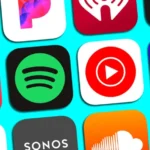Music has always been more than mere entertainment; it is a powerful tool for expressing emotions, raising awareness, and igniting change. Throughout history, certain songs have transcended the realm of art to become anthems of social and political movements. This article explores iconic songs that inspired change, examining their impact and enduring legacy.
1. “We Shall Overcome”
A Civil Rights Anthem: Originally a gospel song, “We Shall Overcome” became the anthem of the Civil Rights Movement in the United States during the 1960s. Its simple yet profound lyrics expressed hope and unity, galvanizing activists in their fight against racial injustice.
Impact: The song was sung during marches, sit-ins, and protests, becoming a unifying force for change. It remains a symbol of resilience and hope in the fight for equality.
2. “Blowin’ in the Wind” – Bob Dylan
A Protest Song: Released in 1963, Bob Dylan’s “Blowin’ in the Wind” posed rhetorical questions about peace, freedom, and justice. Its poetic lyrics resonated deeply with the growing anti-war and civil rights movements.
Impact: The song became a rallying cry for social justice, influencing generations of activists and artists.
3. “Imagine” – John Lennon
A Vision of Peace: John Lennon’s “Imagine” envisions a world without borders, religions, or possessions. Its utopian lyrics challenge listeners to imagine a unified, peaceful world.
Impact: Released in 1971, the song became an anthem for peace movements worldwide, often performed at events advocating for global harmony.
4. “Fight the Power” – Public Enemy
A Hip-Hop Call to Action: Released in 1989, “Fight the Power” by Public Enemy addressed systemic racism, inequality, and empowerment. The song’s powerful lyrics and raw energy captured the frustrations of marginalized communities.
Impact: Featured in Spike Lee’s film Do the Right Thing, it became an anthem for resistance and a cornerstone of socially conscious hip-hop.
5. “A Change is Gonna Come” – Sam Cooke
A Song of Hope: Inspired by personal experiences with racism, Sam Cooke wrote “A Change is Gonna Come” in 1964. Its poignant lyrics and soulful melody expressed the struggles and aspirations of the Civil Rights Movement.
Impact: The song is considered a timeless masterpiece, symbolizing the enduring fight for justice and equality.
6. “Born This Way” – Lady Gaga
Celebrating Individuality: Lady Gaga’s 2011 hit “Born This Way” championed LGBTQ+ rights and self-acceptance. Its empowering lyrics encouraged listeners to embrace their true selves.
Impact: The song became an anthem for the LGBTQ+ community, promoting inclusivity and love.
7. “Do They Know It’s Christmas?” – Band Aid
A Charity Single: Written in 1984 to raise funds for famine relief in Ethiopia, “Do They Know It’s Christmas?” brought together some of the biggest names in music. Its lyrics highlighted global inequality and inspired action.
Impact: The song raised millions for charity and sparked a wave of similar initiatives, demonstrating music’s power to address global crises.
8. “This is America” – Childish Gambino
A Modern Protest Song: Released in 2018, “This is America” by Childish Gambino addressed gun violence, racism, and media distractions in contemporary America. Its provocative lyrics and visuals sparked widespread discussion.
Impact: The song and its accompanying video received critical acclaim for their bold commentary on societal issues, resonating with audiences worldwide.
9. “Where is the Love?” – The Black Eyed Peas
A Global Call for Unity: Released in 2003, “Where is the Love?” tackled issues like terrorism, racism, and inequality. Its heartfelt lyrics called for love and understanding in a divided world.
Impact: The song became a global hit, inspiring listeners to reflect on societal issues and seek positive change.
10. “Sunday Bloody Sunday” – U2
A Song of Protest: U2’s “Sunday Bloody Sunday” was inspired by the tragic events of Bloody Sunday in 1972, when unarmed protesters in Northern Ireland were killed. The song’s powerful lyrics condemned violence and called for peace.
Impact: It remains one of U2’s most iconic songs, symbolizing the struggle for justice and reconciliation.
Conclusion
Lyrics have the power to inspire, unite, and drive change. These songs, and many others, remind us of music’s unique ability to amplify voices and spark movements. As we listen to these anthems, we are reminded of the enduring power of words to shape our world.


